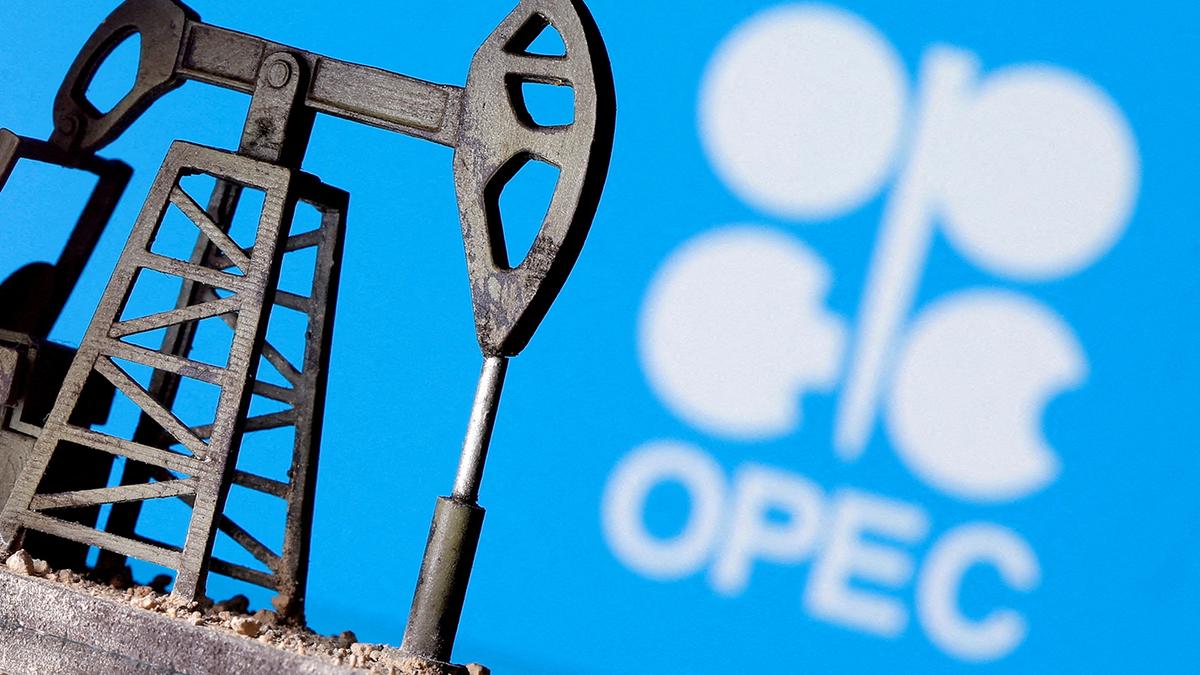The Organization of the Petroleum Exporting Countries (OPEC) has enough spare oil capacity to offset a complete loss of Iranian supplies if Israel were to take out that country’s facilities, but the producer group would be hard-pressed if Iran were to retaliate by installing installations of hit its Gulf neighbors.
Iran fired hundreds of missiles into Israel on Tuesday in response to Israeli airstrikes and attacks.
Israeli Prime Minister Benjamin Netanyahu said Iran had made a big mistake and would pay for it, and Iran threatened a crushing response if Israel retaliated.
Israel’s options include attacking Iranian oil production facilities and other strategic locations, US news website Axios reported on Wednesday, citing Israeli officials.
Iran is a member of OPEC with production of approximately 3.2 million barrels per day or 3% of total global production.
Iranian oil exports have risen to near multi-year highs of about 1.7 million barrels per day this year despite U.S. sanctions.
Chinese refiners buy most of the supply. Beijing says it does not recognize unilateral US sanctions.
“If we were to lose all Iranian production – which is not our base case – OPEC+ in theory has enough spare capacity to make up for the shock,” said Amrita Sen, co-founder of Energy Aspects.
OPEC+, which includes OPEC and allies such as Russia and Kazakhstan, has cut output in recent years to support prices in the face of weak global crude demand. The group therefore has millions of barrels of spare capacity.
Cuts by OPEC+ producers currently total 5.86 million barrels per day.
Analysts estimate that Saudi Arabia can increase production by 3 million barrels per day and the United Arab Emirates by 1.4 million barrels per day.
OPEC+ met on Wednesday to discuss compliance with the cuts. The group did not discuss the Israeli-Iranian conflict, OPEC+ sources said.
“All that was said about the geopolitical situation and the conflict was the hope of non-escalation,” said an OPEC+ source familiar with the discussions.
Not waterproof
While OPEC has plenty of spare capacity to compensate for the loss of Iranian supplies, much of that capacity is in the Middle East’s Gulf region and is potentially vulnerable if the conflict escalates further, said Giovanni Staunovo, an analyst at UBS.
“The effective available spare capacity could be much lower if new energy infrastructure attacks on countries in the region occur,” he said, adding that the West may have to tap strategic reserves if serious oil supply disruptions occur .
Israel has so far refrained from attacking Iranian oil facilities.
Oil analysts and security experts have said Israel could target Iran’s oil refineries and oil port on Kharg Island, which handles about 90% of the country’s total crude exports.
During the Iran-Iraq war in the 1980s, Baghdad regularly attacked tankers around Kharg Island and threatened to destroy the oil terminal.
“Iran and its allies could potentially focus on energy activities in other parts of the region to internationalize costs if the current crisis turns into an all-out war,” said Helima Croft of RBC Capital Markets.
In 2019, a drone attack by Iranian proxies on Saudi Arabia’s oil processing facilities briefly knocked out about 50% of the kingdom’s total crude production.
“In the event of an escalation, Iranian allies could launch attacks on Middle Eastern oil producers, especially Saudi Arabia,” said Tamas Varga of PVM.
Riyadh and Tehran have enjoyed a political rapprochement since 2019, which has helped ease regional tensions, but relations remain difficult.
Oil prices have fluctuated within a narrow range of $70-90 per barrel in recent years, despite the war between Russia and Ukraine and the conflict in the Middle East.
A rise in U.S. production has helped ease the fear premium in oil markets, said Rhett Bennett, CEO of Black Mountain, which has operations in the U.S. Permian Basin.
The US produces 13% of global crude oil production and almost 20% of global liquid oil production, compared to OPEC’s share of global crude oil production of 25% and about 40% of OPEC+.
“This diversity of supply from US domestic sources, combined with healthy spare capacity within OPEC, translates into a sense that the market is insulated from a dramatic supply shock – regardless of the ongoing flare-ups in the Middle East,” Mr Bennett said.
Impending risk
However, a broad conflict in the Middle East with major consequences for production would inevitably raise oil prices.
That would drive up fuel costs. A related increase in gasoline prices could hurt US Vice President Kamala Harris in her campaign to win the November 5 presidential election against Republican candidate Donald Trump.
“The United States will likely try to push Israel into a more modest response to avoid a significant escalation of tensions,” said ING’s Warren Patterson.
Published – Oct 4, 2024 09:54 IST











